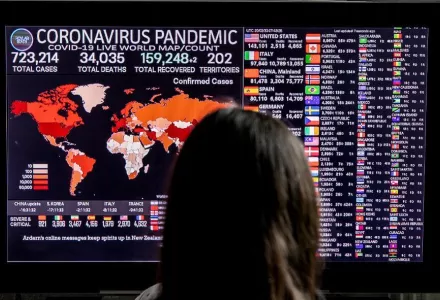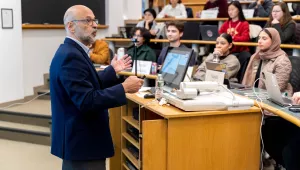Special Online Event: Expert Working Group on Government-Tech Partnership to Track COVID-19
Join the Cyber Project and the Defending Digital Democracy Project (D3P) as we convene tech, government, health, and policy experts in an important discussion on the federal government's efforts to work with tech companies and academia in using citizen data to track and mitigate the spread of COVID-19.
Our main question: How do we get this right--to save lives and preserve privacy and security?
We will use this discussion to generate policy recommendations for the relevant task force working on this issue within the federal government.
The Working Group will feature experts from Harvard Kennedy School, the Belfer Center, and MIT*
The Honorable Sue Gordon Eric Rosenbach
Juliette Kayyem Dr. Margaret Bourdeaux
Jim Waldo Bruce Schneier
Alex Stamos Kathy Pham
Robby Mook Dr. Marc Zissman
Andrew McLaughlin, J.D. Jonathan Zittrain
*Working group still in formation. Please see full titles of Working Group Members in tab below




